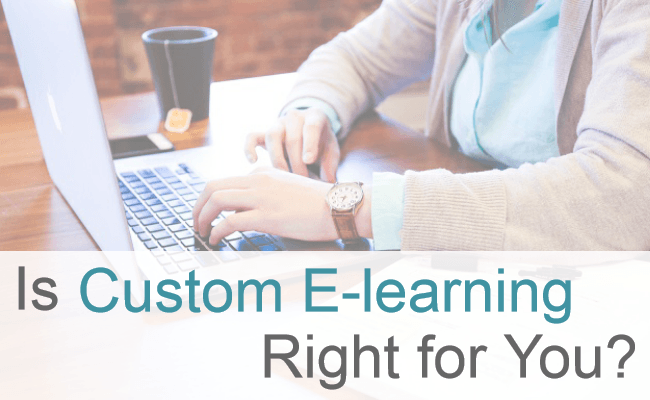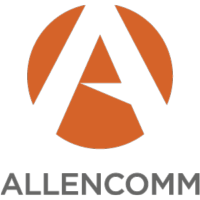Is Custom eLearning Right For You?
I admit to having a soft spot for fast food. There are many days when a trip to the drive-thru, ordering the same cheeseburger produced for millions of other people, is perfect. But I can also be a bit of a foodie; building my own burgers, with just the right mix of seasonings and toppings, is one of my favorite past-times. Deciding whether I want to hit the drive-thru or build a custom burger depends on the answers to a variety of questions: How much time do I have? How much money do I want to spend? With whom will I be eating (and how picky are they going to be)? Both situations can lead to good meals, but they have to be selected wisely.
eLearning has a similar choice: Do we go with an off-the-shelf product, or do we design and develop a custom solution? There are circumstances in which either can be the right answer, and we want to think through the relevant factors to maximize our training budget and the time our learners will spend.
Two main differences are cost and timing. Custom eLearning requires time to design and develop, while off-the-shelf training is ready right now. The time required to produce custom eLearning also raises the price; off-the-shelf content is significantly cheaper than custom since there are no new design or development costs. If price or timing is the most important variable, ahead of even performance results, off-the-shelf training will be cheaper and faster.
But, of course, cost and timing are rarely the only considerations. Training is about improving performance and achieving business goals, and that requires the appropriate content. Not every Learning and Development situation requires custom eLearning; off-the-shelf programs may suffice when the project requires the following:
- External knowledge, including industry-wide regulations or compliance. Sometimes the information our learners need comes from outside the company. Many industries are governed to some degree by governmental regulations or industry-wide compliance standards. The details of these standards or regulations can often be found in off-the-shelf training designed to meet the needs of an entire industry.
- Foundational knowledge, such as effective communication or enterprise leadership. A lot of soft skills have theoretical foundations that will make the eventual application of those skills more effective. An off-the-shelf course in public speaking or professional writing can give an entire team a boost in an important area.
Many training situations, however, cannot be adequately addressed with off-the-shelf content. Custom eLearning is vital when the project requires the following:
- Onboarding: The first voice your team will hear on their first day should be yours. Capturing the company culture and getting to know executives is clearly not something that can be captured by an off-the-shelf onboarding solution. If your company employs a standard HR software tool or email platform, a quick tutorial from the manufacturer might be appropriate. But branding the onboarding experience to your company improves results and gives you more engaged employees.
- Company-specific information, such as product knowledge for sales teams. Your company obviously has a lot of proprietary information, and that information cannot be conveyed by any standard eLearning tool. Training your sales team to sell your products demands eLearning created just for you.
- Application to company situations. If training on company-specific information requires custom eLearning, the application of that information depends even more heavily on it. Your sales teams or your customer representatives embody your business, and they need to be able to use company-specific information in situations that mirror scenarios they are likely to encounter.
The most important reason to turn to custom eLearning is when you want to appeal specifically to your learners. This is an increasingly important strategy because education is not compulsory. We can require attendance, and we can require completion, but we must inspire learning. If we treat our learners as potential customers who have to be sold on the value of a product, we are more likely to produce training that actually gets through and changes behavior.
A view of learners as customers will change both the way we produce (and market) training and the way our learners receive it. First, we will produce training that does more than simply check a box or fulfill a compliance requirement. We will build training that respects our learners’ time, piques their interest, and inspires them to action. And our learners will strive to improve their job performance, know where to find new information, and create momentum for training throughout the organization.
Not every situation requires custom eLearning, and a thoughtful consideration of when it is most useful will help us maximize our training budgets while still providing the most influential training at the most important times.
Want to know which training trend could enhance your eLearning? Take this 8-question quiz to see which trend is right for your company.


